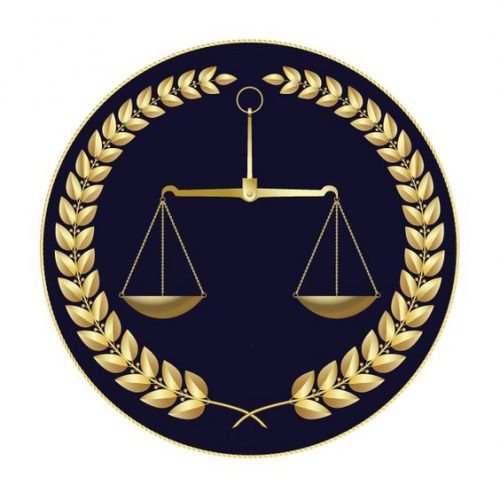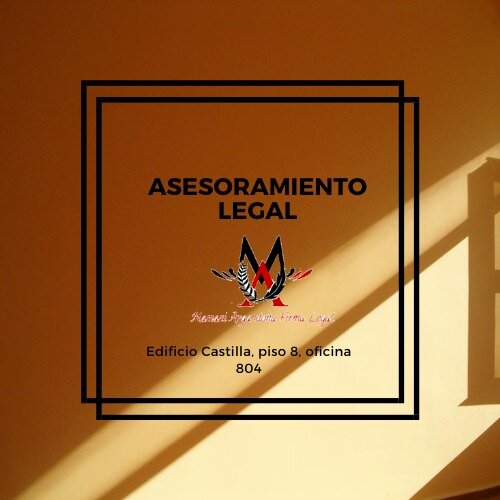Best Energy, Environment & ESG Lawyers in Bolivia
Share your needs with us, get contacted by law firms.
Free. Takes 2 min.
Or refine your search by selecting a city:
List of the best lawyers in Bolivia
About Energy, Environment & ESG Law in Bolivia
Energy, Environment, and ESG (Environmental, Social, and Governance) law in Bolivia forms a complex and evolving framework regulating how individuals and companies interact with natural resources and manage their impact on the environment. Bolivia is endowed with abundant natural resources, including significant reserves of natural gas, lithium, and minerals, as well as a diverse ecosystem. The government has integrated principles of environmental protection and sustainability into its constitution and regulatory policies, seeking to balance development with environmental responsibility and community rights.
ESG standards are increasingly relevant in Bolivia due to growing international expectations and local awareness around corporate responsibility, community engagement, and environmental stewardship. Legislation covers everything from extraction permits for mining or energy production, pollution controls, indigenous community consultations, to specific ESG reporting requirements for companies. Whether you operate a business, develop energy projects, or are concerned about environmental conservation, understanding these laws is essential for compliance and responsible action.
Why You May Need a Lawyer
Legal support is often necessary for a range of scenarios relating to energy, environment, and ESG matters in Bolivia. Some common situations where seeking help is advised include:
- Obtaining permits and licenses for energy or mining projects
- Complying with environmental regulations and standards to avoid penalties
- Navigating community consultation processes or indigenous rights legislation
- Responding to environmental inspections or dealing with alleged violations
- Preparing ESG reporting or disclosures for investors
- Challenging or appealing regulatory decisions from authorities
- Negotiating land use agreements or contracts involving natural resources
- Managing transboundary environmental issues or carbon credits
- Handling disputes with local communities or other stakeholders
- Guidance on developing sustainable and socially responsible business practices
Lawyers specialized in this field bring not only legal expertise, but also practical understanding of regulatory processes and stakeholder engagement, which can be decisive for project success and compliance.
Local Laws Overview
The regulatory landscape for energy, environment, and ESG in Bolivia is mainly shaped by the following legal frameworks:
- Bolivian Constitution: Recognizes the importance of protecting the environment and community participation in resource management. It also specifically acknowledges the rights of indigenous peoples over their territories and natural resources.
- Environmental Law 1333: The principal statute governing environmental protection, pollution control, environmental licenses, environmental impact assessments, and penalties for environmental damage.
- Mining and Hydrocarbons Law: Establishes guidelines for exploration, extraction, and exploitation of natural resources, including requirements for environmental protection and community consultation.
- Regulations for Prior Consultation: Mandate prior, free, and informed consultation with indigenous peoples before projects affecting their lands or livelihoods can move forward.
- Energy Sector Laws: Regulate electricity generation, transmission, and distribution, with particular attention to renewables, licensing, and environmental safeguards.
- Climate Change Policies: Bolivia is a signatory to international environmental agreements and is developing frameworks for climate change mitigation and adaptation, including carbon market initiatives.
- ESG Reporting Guidelines: While not strictly mandated for all companies, ESG principles are becoming more relevant, especially for businesses seeking international investment or operating in regulated sectors.
Penalties for non-compliance can range from fines and suspension of operations to criminal charges and revocation of licenses. Therefore, staying updated and in compliance with the latest local laws is crucial for individuals and corporations.
Frequently Asked Questions
What is an Environmental Impact Assessment (EIA) in Bolivia?
An Environmental Impact Assessment is a requirement for projects with potential environmental impacts. It involves a comprehensive study submitted to the Ministry of Environment and Water, assessing risks and proposing mitigation measures before a project receives its environmental license.
Who is required to obtain an environmental license?
Any individual or company planning activities that may significantly impact the environment, such as mining, energy projects, industrial operations, and infrastructure development, must obtain an environmental license from the relevant authorities.
How are indigenous rights protected in energy and extractive projects?
Bolivian law requires prior consultation with indigenous communities before any project that could affect their territories or resources. This process is guided by national laws and international agreements, ensuring communities have a voice in decisions.
What are the consequences of violating environmental regulations?
Violations can result in administrative sanctions, fines, suspension of operations, remediation orders, and, in severe cases, criminal prosecution. Recurring violations may lead to the revocation of licenses or concessions.
How does Bolivia address ESG (Environmental, Social, and Governance) reporting?
Although not mandatory for all companies, ESG disclosure is increasingly expected by investors and regulatory bodies, especially in high-impact sectors. Reporting may involve disclosures on environmental practices, labor standards, anti-corruption policies, and community engagement.
What is the process for obtaining permits for renewable energy projects?
Renewable energy projects must follow a permitting regime that includes environmental licensing, grid connection permissions, and compliance with energy sector regulations. The process can involve several government agencies and requires technical and environmental documentation.
Can foreign companies participate in energy and environment projects in Bolivia?
Yes, foreign companies are allowed to participate, but they must comply with local laws, which may include partnership requirements with state entities or local participation, as well as strict adherence to environmental and social standards.
How can disputes over environmental damages be resolved?
Disputes can be resolved through administrative processes, mediation, or the judicial system, depending on the nature of the conflict. Some issues may also be addressed through arbitration if stipulated in contracts.
Are there incentives for adopting environmentally friendly practices?
Bolivia offers some incentives, such as tax benefits, expedited permitting, or technical assistance for projects adopting clean technologies or contributing to environmental conservation.
What government agencies regulate energy, environment, and ESG matters?
Key agencies include the Ministry of Environment and Water, the Ministry of Hydrocarbons and Energy, the National Electricity Company (ENDE), and various subnational authorities for local oversight.
Additional Resources
For more specialized advice or guidance, consider reaching out to:
- Ministry of Environment and Water (Ministerio de Medio Ambiente y Agua) - Responsible for environmental licensing, EIA approvals, and enforcement.
- Ministry of Hydrocarbons and Energy (Ministerio de Hidrocarburos y Energía) - Oversees the energy sector, including renewable projects and compliance.
- Autoridad de Fiscalización y Control Social de Electricidad (AE) - Regulates the electricity sector.
- Autoridad Jurisdiccional Administrativa Minera (AJAM) - Supervises mining rights and concessions.
- Municipal Environmental Departments - Handle local environmental matters and permits.
- Bolivian Council for Sustainable Development - Provides resources on sustainable practices and ESG integration.
- Non-governmental organizations such as Fundación Amigos de la Naturaleza (FAN) and Fundación TIERRA - Offer independent advice and advocacy regarding environmental and indigenous issues.
Next Steps
If you believe you require legal assistance with an energy, environment, or ESG-related issue in Bolivia, consider these steps:
- Identify your specific legal need, such as permitting, compliance, dispute resolution, or ESG reporting.
- Gather relevant documentation about your activity or concern, including permits, contracts, and correspondence with authorities.
- Consult with a lawyer or legal firm specializing in energy, environment, or ESG law in Bolivia. Many offer initial consultations to assess your needs.
- Check with local authorities or the agencies listed above for relevant guidance and regulatory updates.
- Stay informed about changes in laws and regulations, as Bolivian environmental and energy laws are subject to ongoing reform and new policies.
Professional legal advice ensures you properly navigate Bolivia’s complex regulatory environment, avoid costly penalties, and fulfill your responsibilities to the environment and affected communities.
Lawzana helps you find the best lawyers and law firms in Bolivia through a curated and pre-screened list of qualified legal professionals. Our platform offers rankings and detailed profiles of attorneys and law firms, allowing you to compare based on practice areas, including Energy, Environment & ESG, experience, and client feedback.
Each profile includes a description of the firm's areas of practice, client reviews, team members and partners, year of establishment, spoken languages, office locations, contact information, social media presence, and any published articles or resources. Most firms on our platform speak English and are experienced in both local and international legal matters.
Get a quote from top-rated law firms in Bolivia — quickly, securely, and without unnecessary hassle.
Disclaimer:
The information provided on this page is for general informational purposes only and does not constitute legal advice. While we strive to ensure the accuracy and relevance of the content, legal information may change over time, and interpretations of the law can vary. You should always consult with a qualified legal professional for advice specific to your situation.
We disclaim all liability for actions taken or not taken based on the content of this page. If you believe any information is incorrect or outdated, please contact us, and we will review and update it where appropriate.
Browse energy, environment & esg law firms by service in Bolivia
Bolivia Attorneys in related practice areas.
Browse energy, environment & esg law firms by city in Bolivia
Refine your search by selecting a city.

















